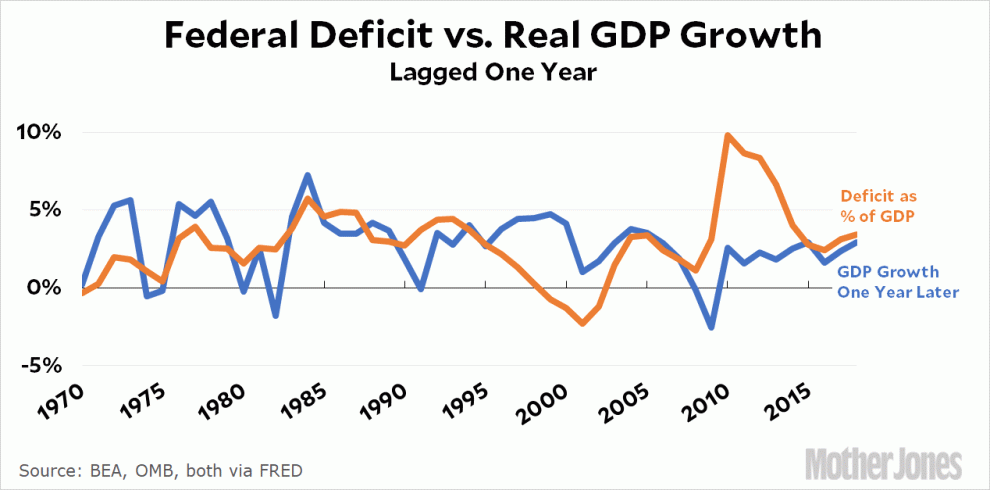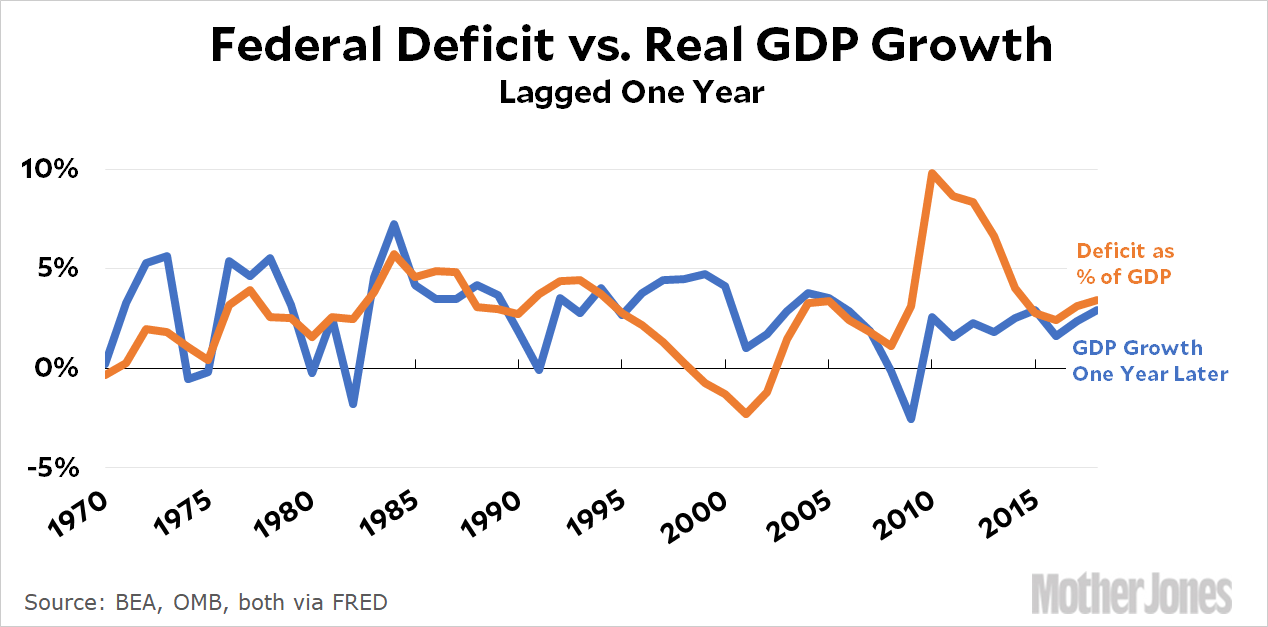
At the Washington Post, Jeff Stein summarizes something that’s been obvious for a while. President Trump’s economic policy is basically a lefty one:
From trade to spending, from the Federal Reserve to paid parental leave, Trump has embraced policy changes that historically are more in line with the approach of Democrats — establishing a forceful role for government in setting the terms of the economy — than of Republicans.
….On trade, Trump has reached a “phase one” trade deal with China that reportedly includes promises to buy far more in U.S. exports. He has completed a revamp of the North American Free Trade Agreement with Mexico and Canada that some liberals are cheering for labor protections and pharmaceutical policies. Trump co-opted a demand from the left to urge the Fed to cut interest rates despite the relatively strong economy, a position the central bank ultimately adopted after seeing signs the economic expansion might waver.
The president has blown away traditional GOP concerns over the rising federal deficit, cutting bipartisan deals to expand government spending and even extend a new paid-leave benefit to the federal workforce. He unilaterally implemented a farm bailout that could prove more expensive than the auto bailout was a decade ago — a move that conservatives had criticized as wasting taxpayer dollars.
Not everything Trump has done is out of the lefty playbook. Progressives favor trade deals with stronger labor and environmental protections, for example, but they don’t generally favor massive trade wars that are mostly aimed at reducing trade deficits. At the same time, conservatives don’t favor massive trade wars either. For the most part, Trump’s trade policy is purely born out of his own id.
As for the other things, Trump isn’t adopting them because they’re progressive. He’s adopting them for the same reason that conservatives often adopt them: they work, and he wants the economy to be in good shape for his reelection. Republicans haven’t objected very much because, despite their constant jeremiads about deficits and big government and bailouts, they too know perfectly well that this stuff works. This understanding won’t last into the next Democratic administration, of course, but the Trump presidency is basically the final and most abject admission by conservatives that neo-Keynesian economic policy is mostly correct.
But it’s been a long time since they seriously believed anything else anyway. They tried out supply-side economics during the Reagan era and discovered that it was a great campaign tool but it didn’t really work as economic policy. Since then they’ve retained rhetorical allegiance to Arthur Laffer’s famous napkin, but in real life there’s nothing left of it in conservative circles except for its usefulness as a pretext for passing tax cuts for their main constituents: corporations and the rich.
In other words, we are all Keynesians now. Still.
















